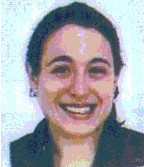“I invite students to follow the evolution of the textile sector”
Nice Premium: Tell us about the company you’re working with and your role in it?
 Julie Wolf: Cortefiel is a textile company founded in 1880, the result of a small family haberdashery business. Today, it encompasses various international brands such as Springfield, Women Secret, Pedro del Hierro, Cortefiel, and Milano. Present in 45 countries with over 1,000 stores worldwide and a total of 11,000 employees, Cortefiel now stands as one of the most powerful textile companies in Spain after Inditex. In search of a position within a Spanish company with a strong international reach, I joined the teams at Cortefiel over a year ago as a senior product manager. In charge of managing the production of sportswear garments for all the group’s women’s brands (particularly in the jeans and “ready-to-dye” items segment), I develop “turnkey” collections allowing them to have competitive and trendy products in stores within 4-5 weeks.
Julie Wolf: Cortefiel is a textile company founded in 1880, the result of a small family haberdashery business. Today, it encompasses various international brands such as Springfield, Women Secret, Pedro del Hierro, Cortefiel, and Milano. Present in 45 countries with over 1,000 stores worldwide and a total of 11,000 employees, Cortefiel now stands as one of the most powerful textile companies in Spain after Inditex. In search of a position within a Spanish company with a strong international reach, I joined the teams at Cortefiel over a year ago as a senior product manager. In charge of managing the production of sportswear garments for all the group’s women’s brands (particularly in the jeans and “ready-to-dye” items segment), I develop “turnkey” collections allowing them to have competitive and trendy products in stores within 4-5 weeks.
NP: What have you done since leaving school? What is your professional background?
JW: Graduating in 1999, I chose the international route and went to work for a company dedicated to the production of advertorials mainly in developing countries. Sent to Mexico in December 1999, I was successively assigned to Estonia (3 months), Malawi (7 months), and Guatemala (4 months) to produce print reports for Forbes as well as over 400 pages of web content per country. These articles involved meeting the main political and economic leaders of these countries. By the end of 2000, I returned to France and joined the Flamingo Brazil teams as the international development manager. As a supplier of woven garments to specialized groups like H&M, C&A, Inditex, I was responsible for the European expansion of the company, managing international clients’ orders, overseeing quality control within the production units we subcontract in Morocco and in nearby markets (Turkey, Tunisia among others), and ensuring compliance with specifications. Recruited by Back-to-Back in 2005, I carried out these same functions but this time within large-scale import productions, mainly in China before joining Cortefiel in September 2006.
NP: Have you always wanted to pursue this career, or is it the result of opportunities?
JW: Coming from a family of merchants, I am the 5th generation of my family dedicated to textiles. Made aware of the issues in this sector from a young age, I wrote my thesis on customer loyalty in luxury ready-to-wear. Initially discouraged by my own family, who experienced the early stages of the textile crisis as a supplier to purchasing centers, I chose nonetheless to join this sector, determined to evolve within it from a different perspective: to “surf” the upward wave of retail, which is redefining itself to be increasingly faster and more competitive, similar to the “ready-to-wear, ready-to-discard” concept embraced with much success by Zara.
NP: What is your educational background, what degree(s) have you obtained?
JW: I graduated in 1999 from the IPAG Business School, specializing in International Marketing.
NP: How are students from your former school viewed within your professional environment?
JW: It’s impossible for me to answer this objectively because, in Spain, I have never encountered former IPAG students working in this sector.
NP: What advice would you give to students considering a career in textiles? Do you think it is better to start with SMEs or large corporations?
JW: In general, I advise them to thoroughly study the different fields and choose their preferred sector as early as possible. I find that it’s increasingly difficult to move from telephony to fashion, cosmetics to automotive, as companies tend to recruit profiles based on activity rather than skill domains. I believe it depends on each individual’s profile. Some people tend to feel more comfortable in SMEs with a human dimension, while others prefer evolving within true emblematic empires. SMEs generally offer more autonomy, responsibility, whereas large enterprises are more segmented, roles more specialized, and consequently the room to maneuver is lesser. However, the growth and evolution seem easier in a big group. In my case for instance, I found myself at 22 as the number 3 of a 30-person SME, in an excellent position where I could craft my own path (by opening new countries, for example) but my career was limited… I would never have been promoted, and for me, it’s a motivation to think “today assistant product manager, tomorrow product manager, the day after brand manager,” and so forth according to your value, efforts, and results.
Lastly, I consider the switch from SMEs to large enterprises much more complex than the opposite. Therefore, anyone projecting themselves in the medium to long term as a leader within a large group has every interest in heading directly towards such companies.
NP: Why did you choose to pursue an international career?
JW: It was at IPAG that my sense of adventure took flight! In my third year, I chose to go to Australia for my international internship… and since then I haven’t set my luggage down in Paris for more than a year consecutively! It’s such an openness of mind, such cultural sharing, such an experience. You can study everything from books, or in class… but nothing beats immersion, arriving lost in a new country and having to rebuild everything. Not to mention the linguistic advantage that it represents! And then, traveling is also about heading into the unknown, giving a new direction to your life…
NP: Currently, what are your prospects for evolution, your professional aspirations?
 JW: Today, I feel like saying that anything is possible! I am quite tempted by the idea of packing my bags again and heading towards new horizons, always in textiles beyond a shadow of a doubt! I hope in the medium term to acquire a brand manager position at Cortefiel unless another opportunity arises along the way… who knows! It’s also the advantage of sticking to the same sector: you become specialized and “sell” yourself much more easily!
JW: Today, I feel like saying that anything is possible! I am quite tempted by the idea of packing my bags again and heading towards new horizons, always in textiles beyond a shadow of a doubt! I hope in the medium term to acquire a brand manager position at Cortefiel unless another opportunity arises along the way… who knows! It’s also the advantage of sticking to the same sector: you become specialized and “sell” yourself much more easily!
NP: Would you like to add something?
JW: I invite students to follow the evolution of the textile sector. Today, even more so than when we were students, you find true case studies like Zara that have revolutionized the rules of this sector. I find it fascinating by nature and think working on such tangible products is a unique opportunity that few experience. For women especially, when your everyday life revolves around dresses, shoes, t-shirts, or accessories, it’s nicer than working on new bolts, hammers, or plastic packages, isn’t it?!


